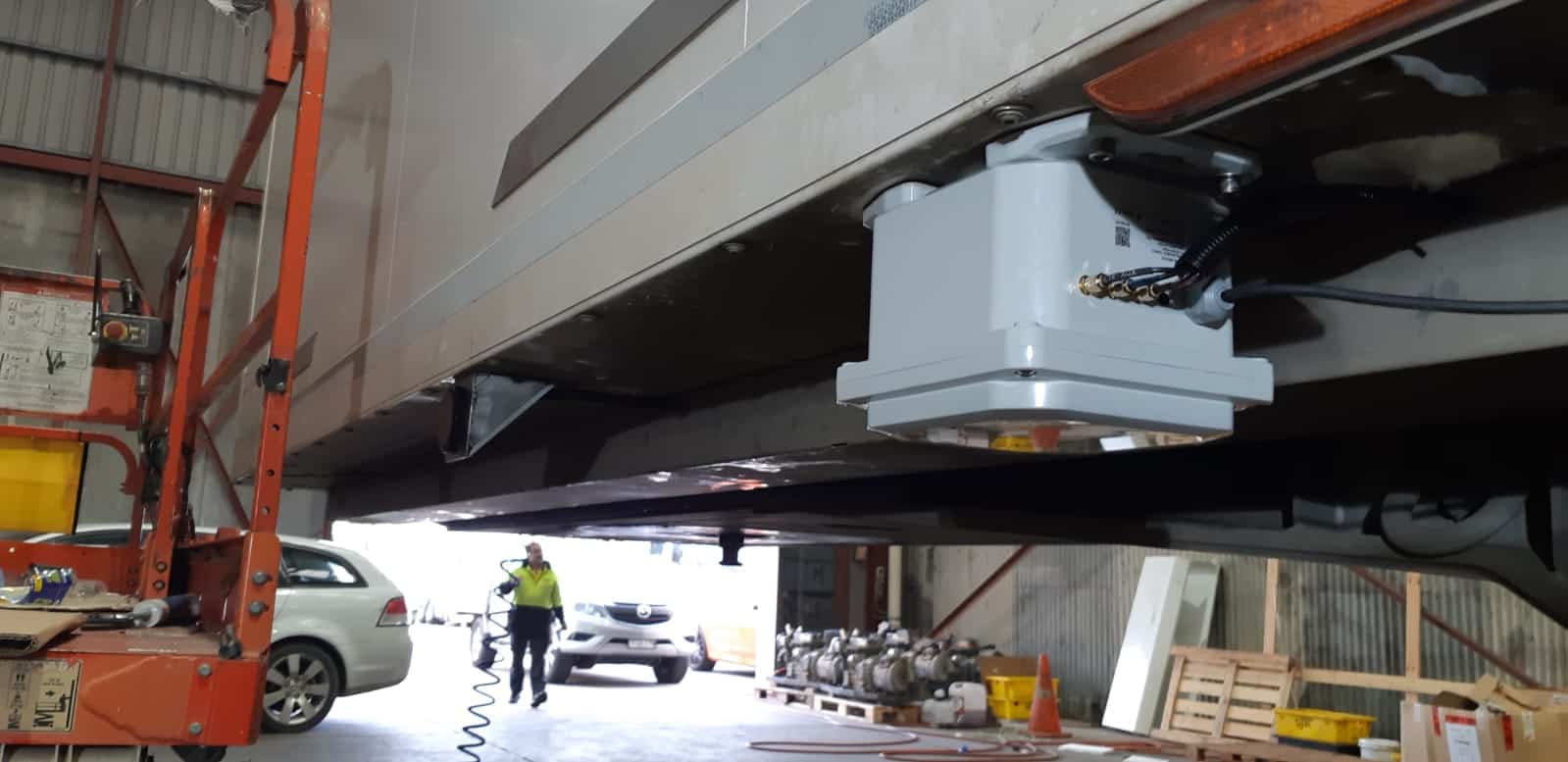
As an eight-year-old immigrant recently arrived from the Philippines, young Joel Sotomayor stepped out of his Guelph home and looked in wonder at the blanket of “white rain” that had fallen overnight. Now the CEO of Transport Gene Inc., the grown-up version of Joel has retained that wide-eyed optimism—in fact it is what drives his entrepreneurial spirit.
“I’ve lived most of my life in a community known for farming. I, myself, have only ever worked as a database developer, but many of my jobs and contracts have had a strong agricultural connection. So, I see the project CAAIN is supporting as an opportunity to give back to a sector that’s been very good to me.”
Indeed, Automating Traceability, Improving Supply Chain Resilience, Creating a Digital Manifest and Providing Transport Assurance Via Generic Data Enablers, is a project with the potential to provide real value to the livestock sector. Joel explains the genesis of the work in which he’s engaged. “A few years ago, I realized that despite the high cost of raising, moving, and processing livestock, transportation of the animals—a vital element of the supply chain—hadn’t progressed meaningfully in decades. This was emphasized by an article I read about a woman who stopped a swine truck in traffic and gave the pigs water. Obviously, she was wrong to do what she did, but she was making a valid point about animal welfare and industry sustainability.”
Joel understood that the increasing scrutiny directed at live-haul trucking was only going to intensify in an era that has consumers wanting information on the origin of the food they eat. And because transportation is the most visible component of the meat sector, it was going to be under the microscope. He recognized an opportunity to use technology to influence public perception while also making a real difference to process and outcomes. The solution? Multi-use sensors installed in each of a trailer’s four corners to monitor environmental conditions and driver adherence to safety protocols.
The results have validated Joel’s eternal optimism but the road to success has not been free of challenges. He describes an instance that still makes him laugh. “The pigs ate one of the sensors we designed. Go figure. Talk about unanticipated consequences!” Working with Ancaster, Ontario’s MARLEX Engineering, the project team kept plugging away, and is now on the seventh version of the sensors, confident that their made-in-Canada technology delivers the functional solution needed to bring live-haul trucking into the 21st century. In addition to being rugged, easy to install, and self-activating, the final product is simple, comprising four sensors and a controller, or “Link,” that handles all functions related to communications and reading data. The system provides real-time ambient temperature and humidity readings, and on more sophisticated trucks can communicate directly with the trailer, activating fans and misting functions as needed to keep conditions optimal for the animals. The sensors can also monitor a trailer’s surface temperature when it is in a decontamination “oven,” ensuring that it reaches the necessary 80 degrees Celsius for the 15 minutes required to kill all pathogens. This latter function has the added environmental benefit of eliminating the use of caustic chemicals without sacrificing hygiene. Finally, the Link can generate and monitor data regarding driver hours and external weather, both of which impact cost and animal welfare. And the beauty of this tech is that it works anywhere in the world, as evidenced by its current use, and pending adoption, by customers in a number of Canadian provinces, as well as in the US, Switzerland, Australia, Mexico, the Philippines, and the Netherlands.
In addition to its ability to improve the perception and reality of livestock transportation, the project includes some important environmental benefits. First, and most obvious, is the reduction of waste associated with animals that might otherwise become sick, or even die, in transit. But Transport Genie and its partners have included some elements that will impact the industry’s sustainability. These include offering clients the option to lease the equipment rather than purchase it. When the lease is up, Joel’s team will swap out the old sensors, whose batteries they will dispose of in accordance with best practices. They will also refurbish the used product. Finally, Transport Genie will funnel a percentage of sales to planting trees the client will be able to claim as carbon offsets. A true win-win arrangement, and one designed to make an energy-intensive segment of the supply chain more socially acceptable and environmentally friendly.
Joel believes his company would not be where it is five years into its existence without the CAAIN funding that has allowed his team to redesign the sensors and develop the data exchange protocol that allows the system to generate and harness millions of information points. Beyond that, he feels the reporting standards demanded of all CAAIN funding recipients have imposed a rigour that have made him a better businessperson and a more effective entrepreneur. He also tips his cap to the Government of Canada trade commissioners who have opened doors internationally, and acknowledges the work of the University of Saskatchewan‘s Associate Vice President, Research, Dr. Terry Fonstad, whose significant contribution was made possible by a MITACS grant.
Joel is particularly proud of two aspects of his company. First, every element of the Transport Genie technology is designed and manufactured in Canada. That means Canadians are creating hardware and software that will improve a critical component of the agri-food value chain domestically and around the world. Second, there is the lease option that allows customers to exchange older sensors that can then be repaired and/or refurbished and put back in circulation. He sees this as being appropriate because our nation’s producers don’t throw out old equipment. As Joel puts it, “We’re just copying the MacGyver quality of Canadian farmers. With enough duct tape you can fix anything!”
CAAIN Contribution
$33,991
Total Project Value
$124,422
Project Contact
Joel Sotomayor
CEO, Transport Genie
jsotomayor@transportgenie.ca